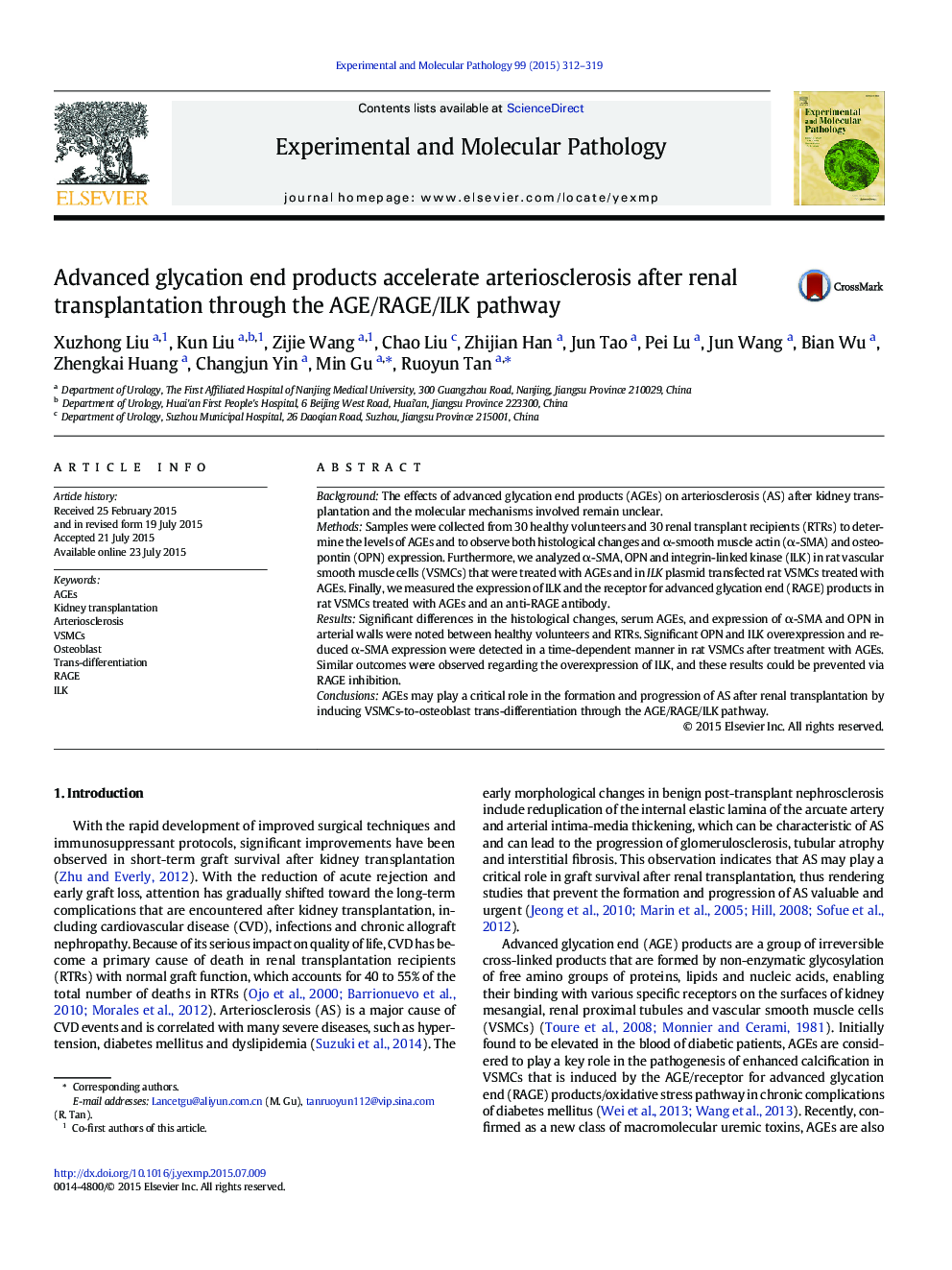| کد مقاله | کد نشریه | سال انتشار | مقاله انگلیسی | نسخه تمام متن |
|---|---|---|---|---|
| 2775027 | 1152305 | 2015 | 8 صفحه PDF | دانلود رایگان |

BackgroundThe effects of advanced glycation end products (AGEs) on arteriosclerosis (AS) after kidney transplantation and the molecular mechanisms involved remain unclear.MethodsSamples were collected from 30 healthy volunteers and 30 renal transplant recipients (RTRs) to determine the levels of AGEs and to observe both histological changes and α-smooth muscle actin (α-SMA) and osteopontin (OPN) expression. Furthermore, we analyzed α-SMA, OPN and integrin-linked kinase (ILK) in rat vascular smooth muscle cells (VSMCs) that were treated with AGEs and in ILK plasmid transfected rat VSMCs treated with AGEs. Finally, we measured the expression of ILK and the receptor for advanced glycation end (RAGE) products in rat VSMCs treated with AGEs and an anti-RAGE antibody.ResultsSignificant differences in the histological changes, serum AGEs, and expression of α-SMA and OPN in arterial walls were noted between healthy volunteers and RTRs. Significant OPN and ILK overexpression and reduced α-SMA expression were detected in a time-dependent manner in rat VSMCs after treatment with AGEs. Similar outcomes were observed regarding the overexpression of ILK, and these results could be prevented via RAGE inhibition.ConclusionsAGEs may play a critical role in the formation and progression of AS after renal transplantation by inducing VSMCs-to-osteoblast trans-differentiation through the AGE/RAGE/ILK pathway.
Journal: Experimental and Molecular Pathology - Volume 99, Issue 2, October 2015, Pages 312–319